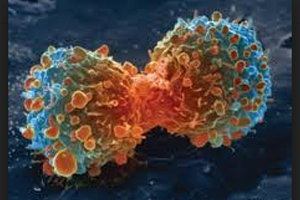- Home
- Editorial
- News
- Practice Guidelines
- Anesthesiology Guidelines
- Cancer Guidelines
- Cardiac Sciences Guidelines
- Critical Care Guidelines
- Dentistry Guidelines
- Dermatology Guidelines
- Diabetes and Endo Guidelines
- Diagnostics Guidelines
- ENT Guidelines
- Featured Practice Guidelines
- Gastroenterology Guidelines
- Geriatrics Guidelines
- Medicine Guidelines
- Nephrology Guidelines
- Neurosciences Guidelines
- Obs and Gynae Guidelines
- Ophthalmology Guidelines
- Orthopaedics Guidelines
- Paediatrics Guidelines
- Psychiatry Guidelines
- Pulmonology Guidelines
- Radiology Guidelines
- Surgery Guidelines
- Urology Guidelines
Indian scientists develop Liquid Biopsy Technology to detect spread of cancer

A team of Pune based scientists led by Dr Jayant Khandare, Chief Scientific Officer of Actorius Innovations and Research, a Pune-based start-up has developed a new liquid biopsy technology which detects circulating tumor cells (CTCs) from lung, breast, colorectal, head and neck cancers. The team claims it to be the world's fastest cancer-detecting technology.
Liquid biopsies are biopsies that involve blood or cerebrospinal fluid for cancer detection. For cancer, these biomarkers most commonly include tumor-derived circulating tumor cells (CTCs), circulating cell-free nucleic acids, such as circulating tumor DNA (ctDNA), exosomes, proteins, and phosphoproteins. Since liquid biopsies can detect tumor-associated genetic alterations, they can be used to molecularly stratify tumors to guide the most appropriate targeted treatment for precision oncology.
The 'OncoDiscover' technology has been approved by the Central Drugs Standard Control Organisation (CDSCO), the national regulatory body for pharmaceuticals and medical devices, they said.
"OncoDiscover is the first-of-its-kind to be licensed to manufacture for sale under the new Medical Device Guidelines, 2017, for early detection of metastasis in epithelial origin cancers," he said. Actorius has indigenously developed the more specific, highly rapid and efficient cancer diagnostic technology in detecting the early spread of cancers, Khandare told PTI.
A team of scientists led by Khandare and Aravindan Vasudevan worked to crack the technological challenges in detecting circulating tumor cells (CTCs) from lung, breast, colorectal, head and neck cancers.
"CTCs are extremely low in numbers, as low as one CTC is accounted for in millions of other blood cells. Their isolation and enumeration in a patient's blood is like finding a needle in a haystack," Khandare said.
The new technology has been patented internationally and "clinically validated" via multiple clinical trials, he said. One such was undertaken by Dr Pankaj Chaturvedi, noted oncologist and deputy director at the Tata Memorial Hospital in Mumbai.
While a similar CTC detection test approved by the US FDA costs USD 1,000 and is unaffordable for most Indians, OncoDiscover comes at a fraction of that cost, he said. The test is now available in Pune at the OncoDiscover Liquid Biopsy Technology lab for cancer patients in India, he added.
Khandare was in 2011 awarded the Alexander von Humboldt Experienced Researcher Fellowship for his research in macromolecular chemistry, involving work on targeting cancer cells and in inflammation using ligands and hyper-branched polymers.
The Germany-based Humboldt Foundation gives this award and 44 of the awardees have gone on to win the Nobel Prize.

Disclaimer: This site is primarily intended for healthcare professionals. Any content/information on this website does not replace the advice of medical and/or health professionals and should not be construed as medical/diagnostic advice/endorsement or prescription. Use of this site is subject to our terms of use, privacy policy, advertisement policy. © 2020 Minerva Medical Treatment Pvt Ltd